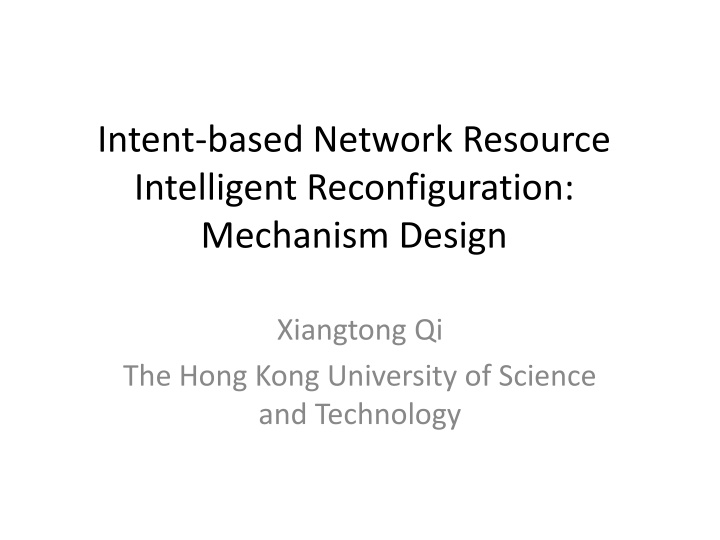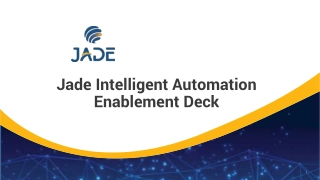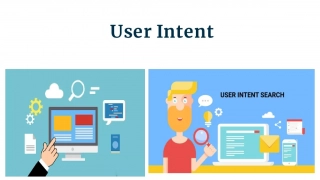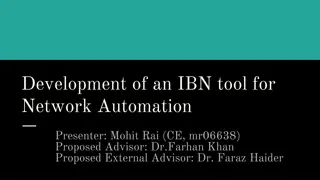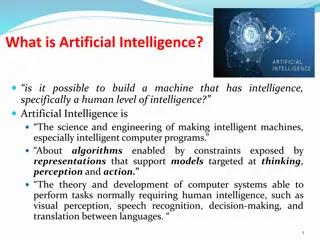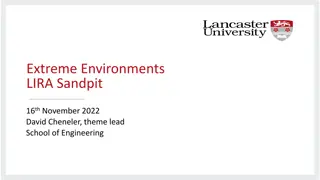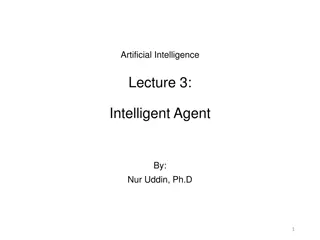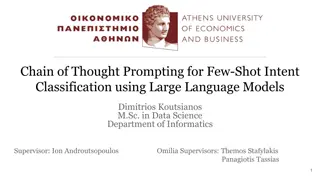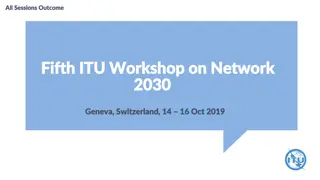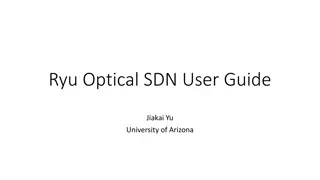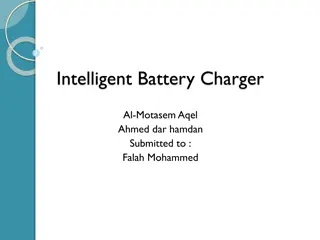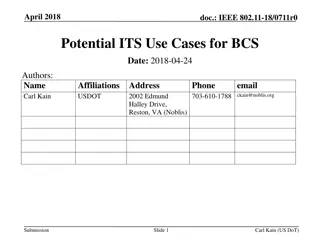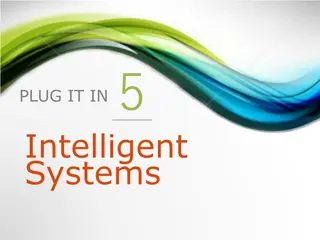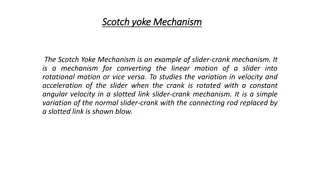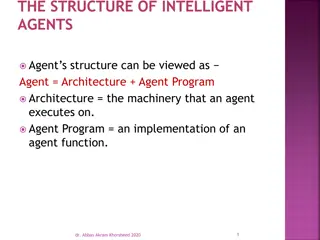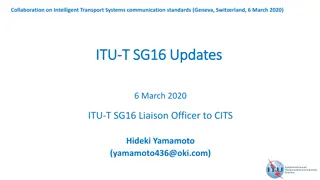Intelligent Mechanism Design for Intent-Based Network Resource Reconfiguration
An exploration of intent-based network resource reconfiguration through intelligent mechanism design, focusing on concepts such as intent setting, abstract views of intent networks, mechanism design, network traffic control examples, system optimization, and underlying optimization strategies. Various challenges, solutions, and user interactions within network management are examined.
Download Presentation

Please find below an Image/Link to download the presentation.
The content on the website is provided AS IS for your information and personal use only. It may not be sold, licensed, or shared on other websites without obtaining consent from the author.If you encounter any issues during the download, it is possible that the publisher has removed the file from their server.
You are allowed to download the files provided on this website for personal or commercial use, subject to the condition that they are used lawfully. All files are the property of their respective owners.
The content on the website is provided AS IS for your information and personal use only. It may not be sold, licensed, or shared on other websites without obtaining consent from the author.
E N D
Presentation Transcript
Intent-based Network Resource Intelligent Reconfiguration: Mechanism Design Xiangtong Qi The Hong Kong University of Science and Technology
What is Intent? Examples of Intent I want to set up a flow from A to B with a bandwidth of 400M I want add 100M bandwidth to my flow I want the utilization rate below 40% for all links Intents may be described in terms of Network Resource, Constraints, Criteria, Instructions From ONOS project How to manage these intents?
An Abstract View of Intent Network Users Network Operator Fact Challenge High flexibility Gaming behavior Intent Management System Resource never enough to satisfy all users Solution Mechanism for effective resource allocation Question Conflict resolution Effectiveness Fairness Network Resources (Bandwidth, Service, IP Address, etc.)
Mechanism Design: A suit of integrated Solutions Optimization Network Operator Resource utilization System stability Individual service level Fairness Game Theory User 1 User 2 User 3
Example of Network Traffic Control Intent 1 Capacity = 100M for all links Setting up a flow of 100M from A to B B A C D Intent 2 Setting up a flow of 100M from C to D
Optimization for System Effectiveness B A C D Both intents are installed Total resource consumption is minimized Network load is balanced
Underlying the Optimization B A C D Time-varying multi-commodity network flow Automatically generating solutions Tailored-made optimization algorithms Demo Users intents: flow adjustment Operator s intent: load balancing
If Intent 1 is submitted earlier, Shortest Path for Intent 1, rejecting Intent 2? B A C D A longer path for Intent 1, waiting for Intent 2? B A C D
Game-Theoretic Analysis For fairness Priority-based solution Round-robin solution Market-oriented solution (pricing, bidding, auction) For effectiveness Ensuring truth telling Incentivizing traffic smoothing
Mechanism for Intent Management Optimization Game theoretical analysis Multiple objectives Forward looking Robust Automatic recovery Effectiveness Fairness Truth telling Sustainability
